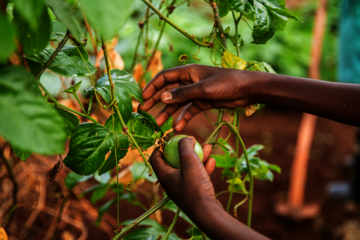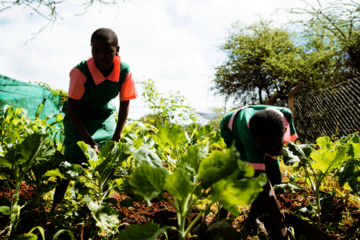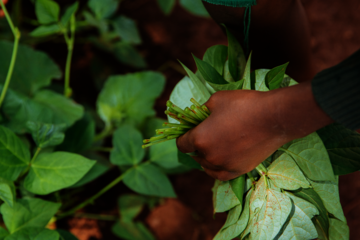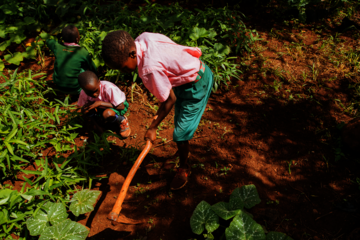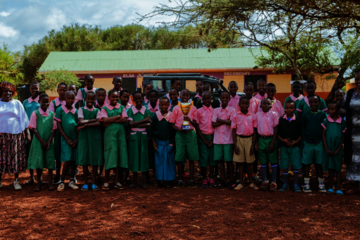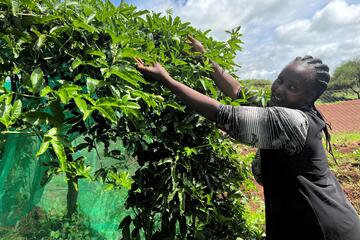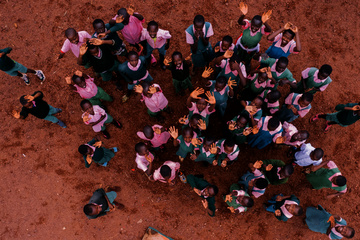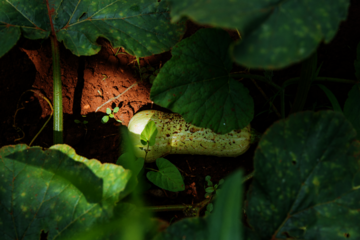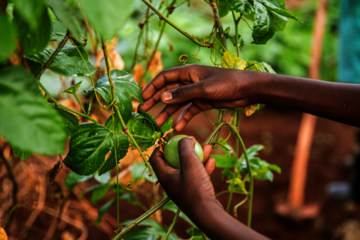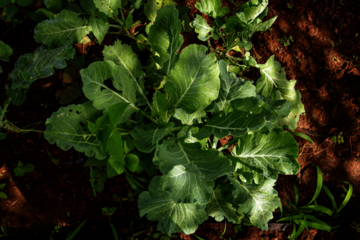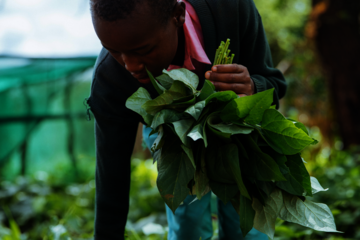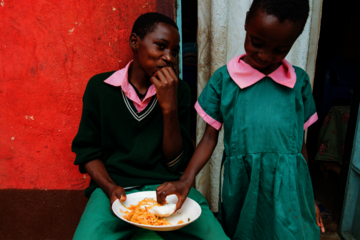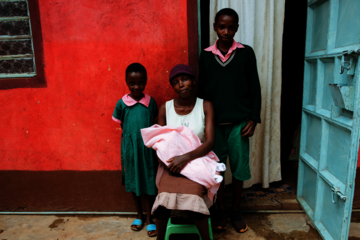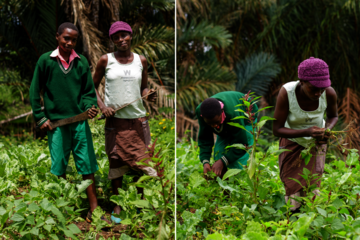Harvest despite Drought: School Gardens in Kenya
How Johniter help students grow vegetables
In Isiolo County in northeastern Kenya, there has been too little rainfall for years. Many people there are affected by poverty and depend on the yields from fruit and vegetable cultivation in their own gardens as well as their livestock. The lack of water now threatens their livelihoods.
To increase food security for children and their families, we are working with our local partner organization MID-P (Merti Integrated Development Programme) to support the establishment of school gardens in Kenya.
Here, girls and boys aged five to 15 learn how to grow healthy vegetables and fruits in their school gardens despite the difficult climatic conditions. The project encourages the children to plant their own gardens and pass on their knowledge, for example about preserving nutrients in the soil and about sustainable agriculture in the form of perma- and mixed cultivation.
Indispensable: committed teachers
Each of the participating schools has at least one teacher who imparts plant knowledge to the children and is also always by their side when it comes to loosening the soil, weeding and watering.
Like Justea Makena at Elsa School in Isiolo County, whom the children affectionately call "Mama Makena." "Due to the drought and little water, it is difficult to grow high-yielding vegetables here in Isiolo. That's why it's important to me to give the children practical knowledge about cultivation and plant care. It's a nice job that the children really enjoy, and they learn something for life," she says. Just how enthusiastic the girls and boys are about the topic of nutrition is also shown by the specially composed "vegetable song," to which the children exuberantly sing and dance. "It won us first prize in the school garden club competition," she says proudly.

Delicious Vegetables for the School Kitchen
It is nice for the children to be rewarded for their diligence and care in gardening. Together with their teacher, they then harvest pumpkins, spinach, kale, papayas, onions, corn and tomatoes. They take the delicious vitamin-rich fruits and vegetables to the school kitchen, where delicious meals are prepared for them. The fresh meal is then enjoyed by all together.
The food grown complements the meals offered at the school and adds variety to the menu.
Together with MID-P, we at Johanniter support the children's nutrition by providing the schools with water tanks, gardening tools, and organic fertilizers as part of the project. We work with the schools to determine exactly what is needed so that more can grow in the gardens. This could also be water pumps so that the children no longer have to laboriously fetch the water for watering from the river each time.
Children about their School Garden

11-year-old Stacey is in the 6th grade. The Elsa School garden is a great happiness for her: "Vegetables make us healthy and strong and help us grow. The trees give clean air and we can harvest delicious fruits from fruit trees." Her favorite vegetables from the garden are spinach, kale and cowpeas, an ingredient often used in Kenyan cooking.
Lincoln Mwai is 14 years old and also attends Elsa School. The school garden project is very important to him. This is because he and his parents are also feeling the effects of the drought at home. The family also has a small garden, from which parents and children feed themselves during the rainy season and earn some money by selling part of the harvest. In the increasingly long dry seasons, however, neither is sufficiently possible. The garden on the school grounds gives Lincoln the good feeling that he is getting a nutritious meal every day. And he can give his parents valuable tips on how to produce more. That makes him proud.
The positive effects of the school gardens extend into the families of the students. This is the case for 14-year-old Pius Granton, who is in the 8th grade at Elsa School. What he learned there from "Mama Makena" about plant cultivation, he has also implemented in his home garden together with his mother Mary Kamumu. "Thanks to Pius, we now grow many more different fruits and vegetables than before and can harvest more. As a result, my four children and I are fed and I hardly have to go grocery shopping anymore," says the 34-year-old single parent.
How to make the school gardens even better
Because the area is so dry, "Mama Makena" and her students often have too little water available for the plants. This is because they share access with the surrounding community. "We would like to have a pump so that we can use water from the nearby river to irrigate the beds," she says. Then the students could harvest even more vegetables and fruits. "Right now, we can only add fresh vegetables to the children's lunch once a week. If we are supported, this can become more meals," says "Mama Makena." They also need more fences around the garden to protect the plants from intruders like goats.
Elijah Bosire, principal of an elementary school in Ntalabany, which is also part of the school garden project, also has many ideas to advance his school's project. They also need a pump, because currently the children climb down rocks to the river every day to fetch water. Water tanks, seeds and fences would also help.
Our school garden project is funded by donations.
Children are our future! Support us in promoting their healthy development through school gardens! Every contribution counts.
Johanniter-Unfall-Hilfe e.V. - International Assistance
IBAN: DE95 3702 0500 0043 4343 43
SozialBank AG AG





